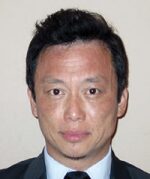In last year’s Technology Focus concerning mature fields, I highlighted safety, well integrity, and digital technology as the three enablers for achieving sustainable returns. In light of the challenging environment our industry is facing, I would suggest that JPT readers become familiar with refracturing techniques, technology/methodology that improves efficiency, and opportunities that achieve positive financial impact and exceed environmental responsibility.
First of all, the surge in unconventional completions over the last decade has created ample candidates for hydraulic refracturing. With the proper implementation of new and improved techniques, followed by diligent economic analysis, refracturing has been demonstrated to be a viable alternative to the more expensive endeavor of drilling and completing new wells. There are numerous informative and enlightening SPE publications on this topic.
Speaking of technology and methodology that improves efficiency, these are the technologies that will be embraced and adopted quickly by the industry, especially in this challenging environment. One of the examples is a methodology that precisely and effectively locates the remaining oil in mature reservoirs. In addition to identifying potential opportunities, it also serves to derisk project investment and allows key decisions to be made in a timely manner.
The other example is a stimulation technique that is designed to deliver pinpoint accuracy. These are technology enablers that, when combined, could significantly improve well performance through precisely addressing isolation, diversion, and placement, for example.
The last point is about achieving investment returns and, at the same time, exceeding corporate environmental responsibility. It seems unlikely that we can have our cake and eat it, too. However, I have witnessed enough examples (mostly outside of our industry) to realize that this certainly can be achieved. The journey will not be easy. Some examples take more than 15 years of persistence and investment to become established. I sincerely encourage JPT readers to incorporate this aspect into their professional responsibility and continue to challenge themselves and their teams.
In this editorial, I talked about refracturing, efficiency, and environmental responsibility. Therefore, I have selected several papers on these topics to share with you. We all know 2016 will be a challenging year for our industry; however, I am sure this is the driving force that we need to take our industry to the next level.
This Month's Technical Papers
Refracturing: A Second Chance To Get It Right Through Diagnostics
An Integrated Methodology To Locate Oil Opportunities in Mature Reservoirs
Conditioning Mature Vertical Wells To Stimulate and Test Shale Productivity
Recommended Additional Reading
IPTC 17718 Successful Restimulation of Western Siberian Oil Fields With Channel Fracturing Technique by Alexey Yudin, Schlumberger, et al.
SPE 173340 Refracturing in Eagle Ford and Bakken To Increase Reserves and Generate Incremental NPV—Field Study by YagnaDeepika Oruganti, Baker Hughes, et al.
SPE 173601 Reduced Emissions and Increased Production Through Gas Compressors: Pilot Case in Colombia by J.C.M. Escobar-Remolina, Ecopetrol, et al.

Jesse Lee, SPE, is chemistry technology manager at Schlumberger. He holds a PhD degree in chemistry from Yale University and conducted post-doctoral research at the Massachusetts Institute of Technology. Lee joined Schlumberger in 1997 in Tulsa as a development engineer, focused on the development of polymer-based fracturing fluids. During 2000–10, he managed new-product development at Schlumberger product centers in Sugar Land, Texas, and Clamart, France. At Schlumberger, Lee is responsible for developing technical collaborations and managing relationships with external chemical companies. He is a member of the JPT Editorial Committee.
